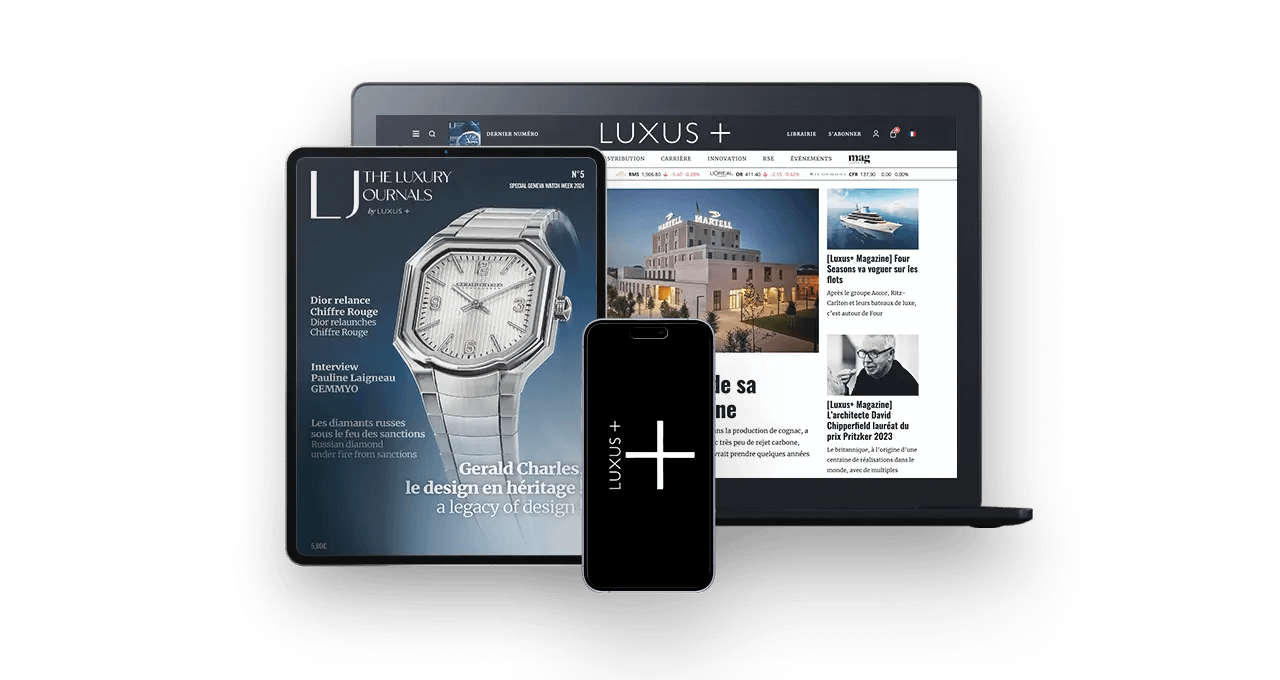Since April, the Chinese government has been cracking down on influencers who promote vulgar or inappropriate content on their social accounts. This has led to the disappearance of many Chinese Internet celebrities, such as Douyin and Bilibili, from the country’s social networks.
Has luxury and its hedonistic lifestyle become vulgar?
At least, that’s the approach that China’s central government seems to have adopted in its fight against the “cult of money”. Two months ago, the Cyberspace Administration of China – China’s Internet regulator – launched a campaign to remove from social networks any content that “deliberately showcases extravagant lifestyles and ostentatious wealth.”
Many celebrities linked to the promotion of a luxurious lifestyle on Tencent, Douyin, Weibo, Kuaishou or Bilibili have had their accounts blocked or even deleted. This display of wealth on social networks is frowned upon by the Chinese government, which, since 2021, has been advocating a policy of “common prosperity”, seeking instead to reduce inequalities and erecting virtue as model behavior.
Numerous “agitators” punished
Wang Hongquan Xing, the “Chinese Kim Kardashian” with 4.3 million subscribers on his Douyin account – a platform similar to the Western TikTok – used to photograph himself wearing outfits in the colors of the biggest luxury brands and boasting about his extravagant lifestyle. “I never go out in an outfit costing less than $1.4 million,” said the 31-year-old jewelry merchant from Hebei province. In March, he had taken part in the opening of a jewelry boutique in Beijing with a host of online celebrities. On May 21, things changed: his account was deleted, a victim of “the wave of suspension that is sweeping through influencers whose content revolves around the ‘excessive display of wealth’”, as local daily China Daily summarizes it.
On the same day, other leading influencers suddenly disappeared from Chinese social networks.
Such was the case of Baoyu Jiajie, aka Sister Abalone, nicknamed “the richest woman on the Internet” by her 2.3 million followers, who had broken audience records by offering a filmed tour of her two Macau mansions.
Bo Gongzi, known as “Mr. Bo” (25), a collector of Hermès bags, luxury cars and designer outfits, suffered a similar fate. The latter gained attention on specialized livestreaming shows for his ability to sell beauty products at breakneck speed, each one generating sales of between 750,000 yuan and 1 million yuan ($103,576) between March and May, according to data provided by data provider Chanmama.
This episode is a reminder that the Internet in China is so strictly regulated that censors do not hesitate to punish any individual or company identified as a potential dissident agitator. In 2021, Viya, another star livestreaming (teleshopping 2.0) influencer, had her account deleted after being fined $210 million for tax evasion. Before her ousting, she had 18 million followers on her Weibo account and 80 million followers on Taobao.
Real good lives
Behind this type of sanction, the regulator intends to crack down on “behavior that meets the vulgar demands of the public by deliberately displaying a lavish lifestyle based on wealth.” He adds, “This type of behavior creates a highly distorted imaginary, spreading unhealthy values through the pursuit of wealth.”
The sudden disappearance of these “luxury influencers” is dividing opinion on social networks. On the micro-blogging platform Weibo, the corresponding hashtag has garnered over 210 million views. While some deplore the impossibility of consulting the content of their favorite influencers, others hail a government initiative aimed at combating an Internet environment that has become toxic.
The luxury influencer is not the only bête noire of Chinese social networks: fake news created from scratch to increase the number of views on Chinese social networks is also in the crosshairs. Douyin has got the message. In a recent press release, the social platform said it would “guide content creators to bear witness to their real and good lives”. Between May 1 and 7, the platform removed 4,701 items of inappropriate content and closed 11 accounts.
According to a message published on May 15, Weibo is committed to creating a “civilized, healthy and harmonious” environment and encourages users to create or share content that is “truthful and oriented towards positive values”. Since that date, the social platform has reportedly “cleaned up” 1,110 messages flaunting wealth and other “bad values” in their content. A total of 27 accounts have been banned or suspended, depending on the seriousness of the offence.
These major internet cleansing campaigns have multiplied since 2016 towards individuals and organizations that would not pronounce positive values. Until now, regulators have mainly required influencers not to denigrate the Chinese Communist Party or traditional Chinese culture, but also not to promote food waste or spread rumors about Chinese companies.
Read also > XI JINPING IN FRANCE: A DIPLOMATIC VISIT AWAITED BY COGNAC AND LUXURY BRANDS
Featured Photo: © Engine Akyurt/Unsplash






































